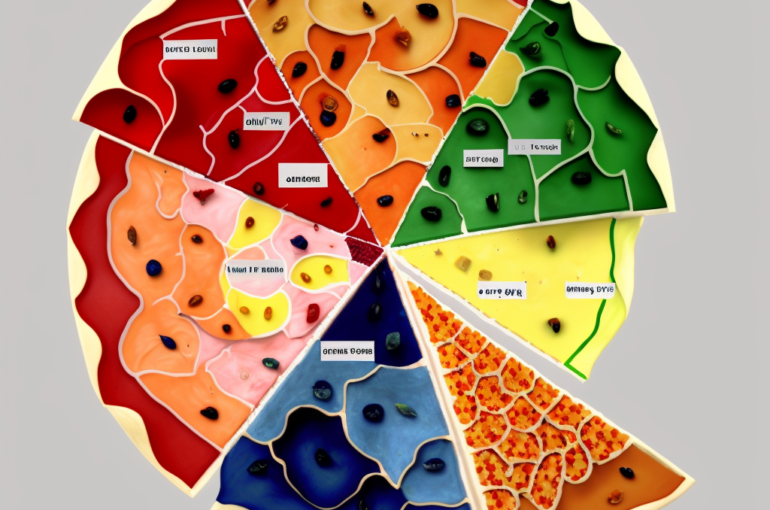Delicate pie – Nigeria’s presidential elections

The 2023 Nigerian elections saw a continuation of the trend of declining voter turnout – with only 26% of eligible voters participating. The results also support the growing consensus view that a candidates popularity, or rather ability to reach across the Niger, is essential for electoral success.
To ensure that the public’s interests are accurately represented, addressing voter turnout and vote-buying is essential. Factors such as voter education, accessibility to polling stations, and trust in the electoral process need to be considered to encourage greater participation.
Analyzing the popularity of the four leading candidates in the 2023 Nigerian elections reveals that Tinubu (APC) had the broadest support across Nigeria, securing at least 25% of votes in 30 states and winning the election with 37% of the total votes. Atiku (PDP) managed to secure at least 25% of votes in 21 states, with a total of 28% of the votes. Peter Obi (LP) secured at least 25% of votes in 16 states and received 25% of the total votes. Kwankwaso (NNPP) had the least popularity among the four candidates, securing at least 25% of votes in only one state. The three leading candidates had different campaign strategies, with Peter Obi focusing on engaging the electorate – especially youth and educated professionals; while Tinubu concentrated on party members and structures. Atiku appeared primarily involved in resolving internal party disputes, centering around a particular governor known for his entertaining and dramatic persona.
Internal party cohesion is crucial for success in elections. Despite media coverage highlighting rifts within the APC, the party managed to maintain unity and focus on securing the presidency for Tinubu.
This cohesion likely contributed to the party’s victory in the 2023 Nigerian elections. We will however know exactly how deep any party rifts are as soon as the popular ‘politicians transfer season’ opens sometime around Q3.
Moving on from party cohesion, it is important to acknowledge the issue of vote-buying in Nigerian politics. Most Nigerians consider vote-buying unacceptable, yet the practice remains prevalent, driven by factors such as economic hardship or fear of intimidation.
Addressing vote-buying will require political actors who engage in it to face stringent consequences. Political financing reform, election security, and ballot secrecy are equally vital in addressing vote-selling.
By focusing on both improving voter turnout and preventing vote-buying, Nigeria can ensure more accurate representation of the public’s interests and enhance its democratic processes for free and fair elections.
Strengthening party cohesion and addressing key challenges in the electoral process will be crucial in promoting a more transparent and inclusive political landscape.
To ensure that the public’s interests are accurately represented, addressing voter turnout and vote-buying is essential. Factors such as voter education, accessibility to polling stations, and trust in the electoral process need to be considered to encourage greater participation.
Analyzing the popularity of the four leading candidates in the 2023 Nigerian elections reveals that Tinubu (APC) had the broadest support across Nigeria, securing at least 25% of votes in 30 states and winning the election with 37% of the total votes. Atiku (PDP) managed to secure at least 25% of votes in 21 states, with a total of 28% of the votes. Peter Obi (LP) secured at least 25% of votes in 16 states and received 25% of the total votes. Kwankwaso (NNPP) had the least popularity among the four candidates, securing at least 25% of votes in only one state. The three leading candidates had different campaign strategies, with Peter Obi focusing on engaging the electorate – especially youth and educated professionals; while Tinubu concentrated on party members and structures. Atiku appeared primarily involved in resolving internal party disputes, centering around a particular governor known for his entertaining and dramatic persona.
Internal party cohesion is crucial for success in elections. Despite media coverage highlighting rifts within the APC, the party managed to maintain unity and focus on securing the presidency for Tinubu.
This cohesion likely contributed to the party’s victory in the 2023 Nigerian elections. We will however know exactly how deep any party rifts are as soon as the popular ‘politicians transfer season’ opens sometime around Q3.
Moving on from party cohesion, it is important to acknowledge the issue of vote-buying in Nigerian politics. Most Nigerians consider vote-buying unacceptable, yet the practice remains prevalent, driven by factors such as economic hardship or fear of intimidation.
Addressing vote-buying will require political actors who engage in it to face stringent consequences. Political financing reform, election security, and ballot secrecy are equally vital in addressing vote-selling.
By focusing on both improving voter turnout and preventing vote-buying, Nigeria can ensure more accurate representation of the public’s interests and enhance its democratic processes for free and fair elections.
Strengthening party cohesion and addressing key challenges in the electoral process will be crucial in promoting a more transparent and inclusive political landscape.




